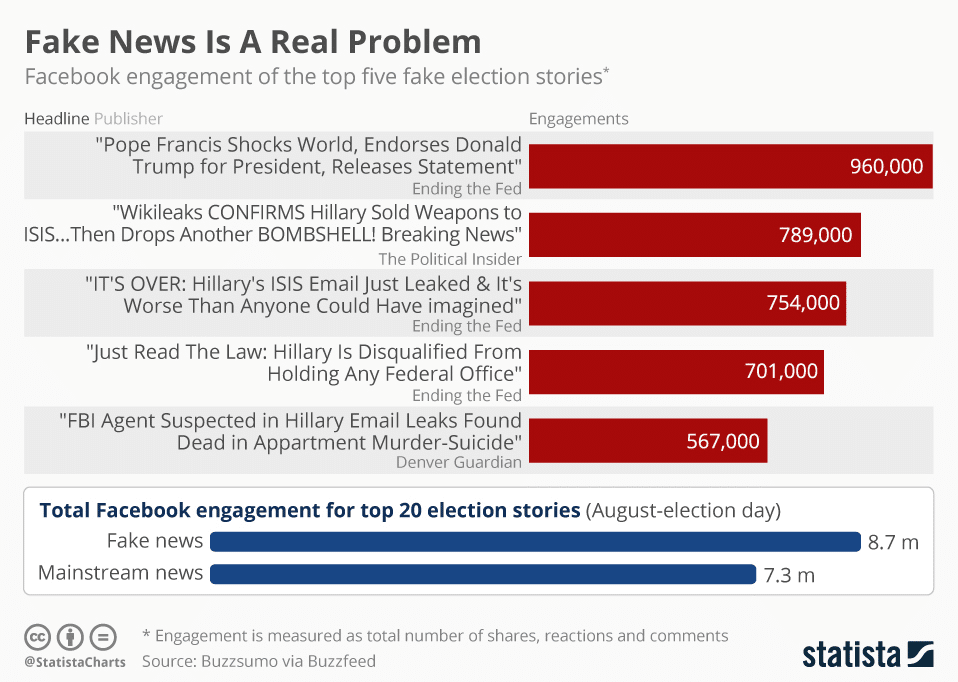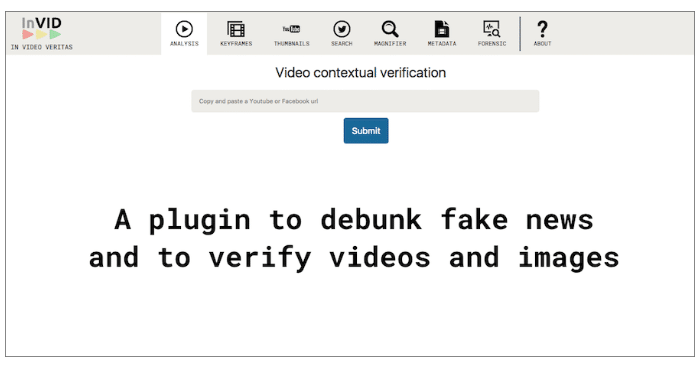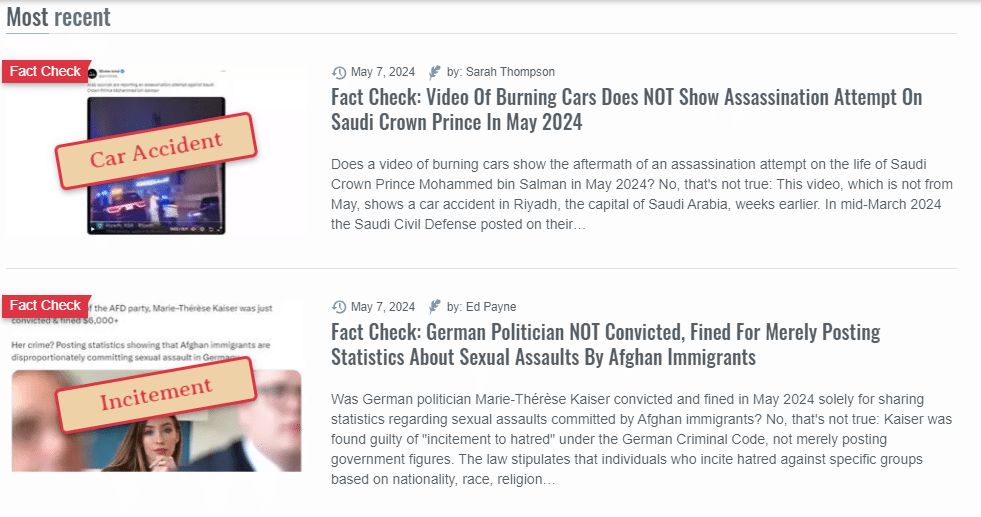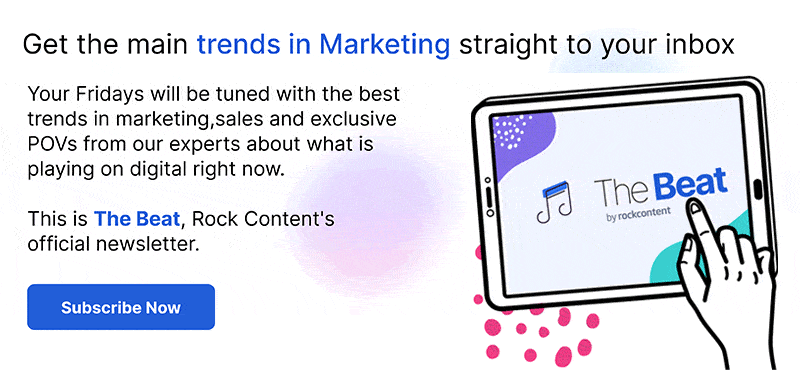You might remember how during the pandemic of 2020, there was this whole thing about 5G causing Covid-19. But fake news has been a problem way before that.
So, the media and governments have been trying all sorts of things to stop fake news from spreading. And there are plenty of tools out there to help fight it. But you know what? Not everyone’s using them. This article is here to hook you up with the best tools to spot fake news like a pro.
Nowadays, it’s super important to stop misinformation in its tracks.
Just look at what’s been happening lately with the US midterm elections and the Brazilian presidential runoff. A report came out saying social media platforms are struggling big time to keep misinformation at bay.
Sure, some platforms are tweaking their rules to keep folks from getting duped, especially around voting and elections. But hey, we’ve got to do our part too, as marketers and content creators.
- How Long Has Fake News Been With Us?
- Why Is It Important to Double-Check What You Share?
- Fact-Checking and SEO
- 8 Fact-Checking Tools You Need To Know!
- Fact-Checking Tools FAQs (Frequently Asked Questions)
- Prevent the Spread of Misinformation with Accurate Content Writing
Download this post by entering your email below
How Long Has Fake News Been With Us?
Fake news has been on the internet for a while. During the US presidential elections of 2016, people started talking about this topic because of the number of false stories that were spreading on social media like Facebook, Twitter (now X), and Instagram.

But who is generating the fake news? Sometimes people with bad intentions or working for some extreme ideological party, but can also be trolls and bots.
For example, according to CITS, in 2017 there were 23 million bots on X (formerly known as Twitter) (around 8.5% of all accounts), 140 million bots on Facebook (up to 5.5% of accounts), and around 27 million bots on Instagram (8.2% of the accounts).
Why Is It Important to Double-Check What You Share?
The most obvious problem with fake news is that it can confuse people about important issues, such as public health, social problems, and elections. It polarizes even more and creates a feeling of panic that impacts our democracy and the decisions of ordinary people.
Double-checking the information we read is important because it:
- Prevents you from spreading hoaxes;
- Reduces the discomfort that a conspiracy theory can produce;
- Helps you to work on your biases and encourages learning about the two sides of the same story;
- For Americans, made-up information is becoming a relevant concern, even bigger than climate change. According to Pew Research Center, 50% of the respondents say that is a huge problem.
How does it affect brands?
So let’s pretend you have a product about some essential oils, and you received a review that says that your product can cure “x” or “y” diseases. You, as the owner of the product, know that is impossible. What would you do? Are you letting that false information spread or clarifying that your oils don’t have that attribute?
Since at Rock Content, we try to make marketing better, we understand how important it is to share information in the most ethical way possible.
Fact-Checking and SEO
Social media sites have gotten a lot of flak for failing to detect and stop the spread of fake news. However, that doesn’t mean there are no consequences for spreading misinformation.
For years, Google has been taking action against sites that spread misinformation.
The search engine pushes down sites that spread misinformation, allowing users to report offensive autocomplete suggestions and inaccurate Featured Snippets. It also plans to realize an “About This Result” feature, so users can learn more about a site before clicking.
Sites with accurate or misleading content rank higher than sites with accurate content. Moreover, Google will likely become more adept at catching erroneous content as time passes. Failing to fact-check content can result in a low search engine ranking and loss of trust.
This holds even if you did not intend to spread inaccurate content.
Spreading misleading information can also ruin your online reputation. It will drive away potential customers due to a lack of trust. It will make it hard for you to build the brand loyalty you need to keep your business successful long-term.
Fact-checking tools are an effective way to check your content before hitting the “publish” button. Following are some well-known ones you may want to consider.
8 Fact-Checking Tools You Need To Know!
What is the easiest way to research something nowadays? Clearly, just Google it. However, that is not enough. That is why we created a list of tools that can help you uncover false information, half-truths, or biases.
1. InVid
Videos can also be manipulated. Trolls can cut a video, edit, and publish it without a certain context just to confuse others.
InVid is a free plugin that analyzes videos and text to ensure accuracy. It was initially designed for journalists but can be used by anyone. It is user-friendly and handles content in English and several other languages.
InVid has received rave reviews from multiple users. It also won a US Paris Tech Challenge award in 2021. Its only drawback is that it may need to be more effective in monitoring misinformation not related to current events.

2. Duplichecker
Another tactic of fake newsmakers is to use an image in a time and context that it doesn’t belong. For example, they can use an image of something that happened in India and make it look like it happened in Mexico.
Duplichecker checks articles for plagiarism, but not for misinformation. It’s not free, but you can pay as little as $5 per week to check up to 25,000 words.
The site also has a reverse image search feature to ensure images aren’t edited to create misleading impressions. The reverse image search feature costs between $9.99 and $44.99 monthly.
3. Ground News
Ideological bias is also something that helps to spread misinformation.
Ground News shows news coverage of an event from different news sources. It also provides information about the ideological bias of each source. It’s great if you want an accurate worldview; however, it may not be helpful for business owners who want to fact-check a particular claim.
It’s free, but some tools require membership, which usually costs $99.99 a year. The site also has a mobile app.
4. FactCheck
FactCheck specializes in analyzing stories related to U.S. politics.
It answers questions about the veracity of trending stories, and you can submit a question if you don’t see it automatically answered on the site. It also has a SciCheck feature if you want to check the scientific accuracy of a particular claim.
FactCheck is free and easy to use. However, it has a limited scope.

5. Google Fact Check Explorer
Google Fact Check Explorer is essentially a search engine for fact-checkers.
It’s easy to use, free, and highly effective. Go to the site, type in the name of a person or a particular claim, and the answers will be listed below. The site shows if a claim is true, false, unverified, misleading, or needs context.
6. Media Bias/Fact Check
Media Bias/Fact Check is a helpful site if you want to see if a particular news website is credible and unbiased.
Type in the name of the site and the answer will show the site’s ranking. There are multiple levels, including unbiased, left-center bias, right-center bias, left bias, right bias, and conspiracy pseudoscience.
Media Bias/Fact Check is free. However, it focuses primarily on political and scientific sites. It also does not answer specific claims or fact-check videos or images.
7. Truth or Fiction?
Truth or Fiction has been a reliable fact-checking website for many years. You can scan trending stories or type in a name or question to get a specific answer.
The site is free. It rates stories by varying levels of credibility, including true, decontextualized, and fiction. The rating can help you identify accurate information while avoiding information that isn’t entirely accurate.
8. Lead Stories
Lead Stories offers free, comprehensive fact-checking. It not only focuses on politics but also fact-checks articles on scientific and entertainment-related topics. Additionally, there is a deep fakes section highlighting fake images and videos.
The only drawback of using Lead Stories is that it does not have an “ask a question” feature. While you can search the site for information, you cannot ask about a specific claim that may not be addressed on the site.

Bonus: Check the original source!
Sources are key when verifying if some claims are actually true.
Who is saying this? If they are citing an organization, check what the official site says. Also, try to verify if other websites or journals are covering the story in the same way, because they can’t all have the same biases.
Fact-Checking Tools FAQs (Frequently Asked Questions)
Are fact-checking tools reliable?
Fact-checking tools can be reliable, but their accuracy varies depending on factors such as methodology, sources, and transparency. The tools explored in this article are reliable.
What is the best fact-checking tool?
The best fact-checking tool is subjective and depends on individual needs and preferences. Other popular options besides the ones explored above include FactCheck.org, Snopes, and PolitiFact.
Is Google’s fact-checking tool good?
Google has more than one fact-checking tool, and they’re considered reliable, but like any tool, they should be used judiciously.
Prevent the Spread of Misinformation with Accurate Content Writing
On social media, there’s so much information that it’s hard to identify what’s true and what’s a hoax. We can’t control everything that appears on the internet, but we can control what we publish and what we choose to read.
Researching various claims takes time and a lot of hard work, even if you use a good fact-checking program. According to a source, over 60% of all the information on the internet can be fake, and not even fact-checkers can monitor all the fake news published online on a daily basis.
We’re still fighting to make social media a safe place for everyone, and we can do our part if we put our efforts into sharing information responsibly.
Thankfully, you don’t have to go it alone. WriterAccess offers access to vetted freelance content writers who can provide accurate, thoroughly researched content on your terms. What’s more, WriterAccess provides managed services to help you find a content writer who is familiar with your industry and can effectively reach your brand persona.
If you need a steady stream of fact-checked content, get in touch with us to learn more about our services. Alternatively, you can try out the 14-day WriterAccess trial to see how it works. Thousands of clients from multiple industries trust us to provide accurate content, and we look forward to meeting or even exceeding your expectations.








